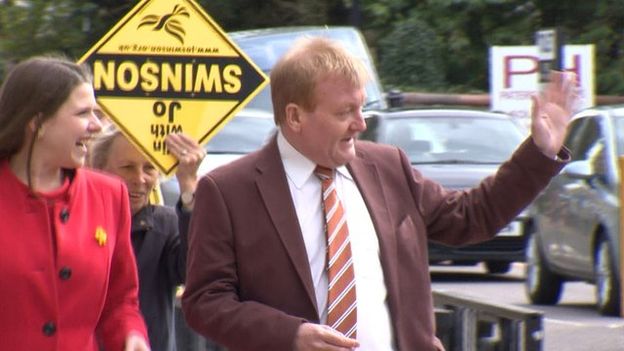The polls still suggest a close result but, with the Tory campaign in disarray and their supportive press barons suffering a collective nervous breakdown, I’ve started to feel vaguely optimistic that the next BIS employment relations minister will be a talented Labour MP such as Gloria De Piero, Stella Creasy or – if he survives the SNP tsunami – the excellent Ian Murray. And the reported remarks of Labour’s Lord Falconer, that the shadow cabinet has “very, very few” machinery of government changes in mind, has set me thinking about just how long a ‘to do’ list the new BIS minister would find waiting for them on their desk at 1 Victoria Street.
Because, as easy as it is to criticise the Labour manifesto for its lack of ambition on employment law-related reform, and the woolliness (ET fees) and/or daftness (zero-hours contracts) of some of its specific policy pledges, there’s actually quite a lot for a new Labour employment relations minister to be getting on with. In their first 12 months in the job, she or he will need to devote time and energy to some or all of the following work strands:
- Working out how to translate the high-profile manifesto pledge to “ban the abuse of zero-hours contracts” into meaningful policy action;
- Initiating the promised process, jointly led by the CBI and TUC, for agreeing reforms to the ET fees regime and – seemingly – the ET system more generally;
- Working out how to implement a package of woolly pledges to enhance enforcement of the minimum wage (increased fines/penalties for non-compliance, a role for local authorities, a reformed/beefed up Low Pay Commission, and a possible new emphasis on criminal prosecutions);
- Launching a consultation on “allowing grandparents who want to be more involved in caring for their grandchildren to share in parents’ unpaid parental leave”;
- Developing a plan to “tackle exploitation in the care sector as a route to protecting staff and improving standards”;
- Responding to the findings of the Equality & Human Rights Commission’s inquiry into pregnancy and maternity discrimination in the workplace (originally due out in March, but postponed until after the election);
- Working out how to translate the pledges to “tackle undercutting by rogue employment agencies”, including by “taking action to crack down on rogue agencies that exploit workers illegally for profit”, and to “extend the Gangmasters’ Licensing Authority approach to cover sectors where there is evidence of high levels of migrant labour and exploitative working practices” into meaningful policy action; and
- Preparing a Bill to legislate as necessary in relation to these and other strands of work.
That’s quite a ‘to do’ list for anyone to cram into five days a week, let alone someone who has a second job as a constituency MP. Yet the position of BIS employment relations minister has always been both a junior and a part-time role – the remit of the Parliamentary Under Secretary of State for Employment Relations and Consumer Affairs currently covers, in addition to employment relations: Post Office and postal policy; consumer policy and consumer affairs; competition policy; corporate governance; company law; social enterprise; Insolvency Service, including company investigations; and BIS better regulation, efficiency and reform agenda.
So, if Labour are serious about “supporting firms to win the race to the top, not get dragged into a race to the bottom”, perhaps one minor ‘machinery of government’ change they should consider is separating employment relations and consumer affairs, and appointing a Minister of State for Employment Relations. Some of of the above work strands will involve tricky negotiations with HM Treasury, the Ministry of Injustice and other departments, and on ET reform the minister will no doubt need to bang heads together at the CBI and TUC, so it would be handy not to be at the very bottom of the ministerial food chain. And promoting the position to Minister of State level would widen the talent pool from which to select what should be a prominent voice in any Labour government formed after 7 May.
Postscript: As if I hadn’t made the case well enough above, today the following photograph emerged, showing that the current holder of the post is too exhausted from her ministerial duties to notice that her campaign team are holding her placards upside down.
